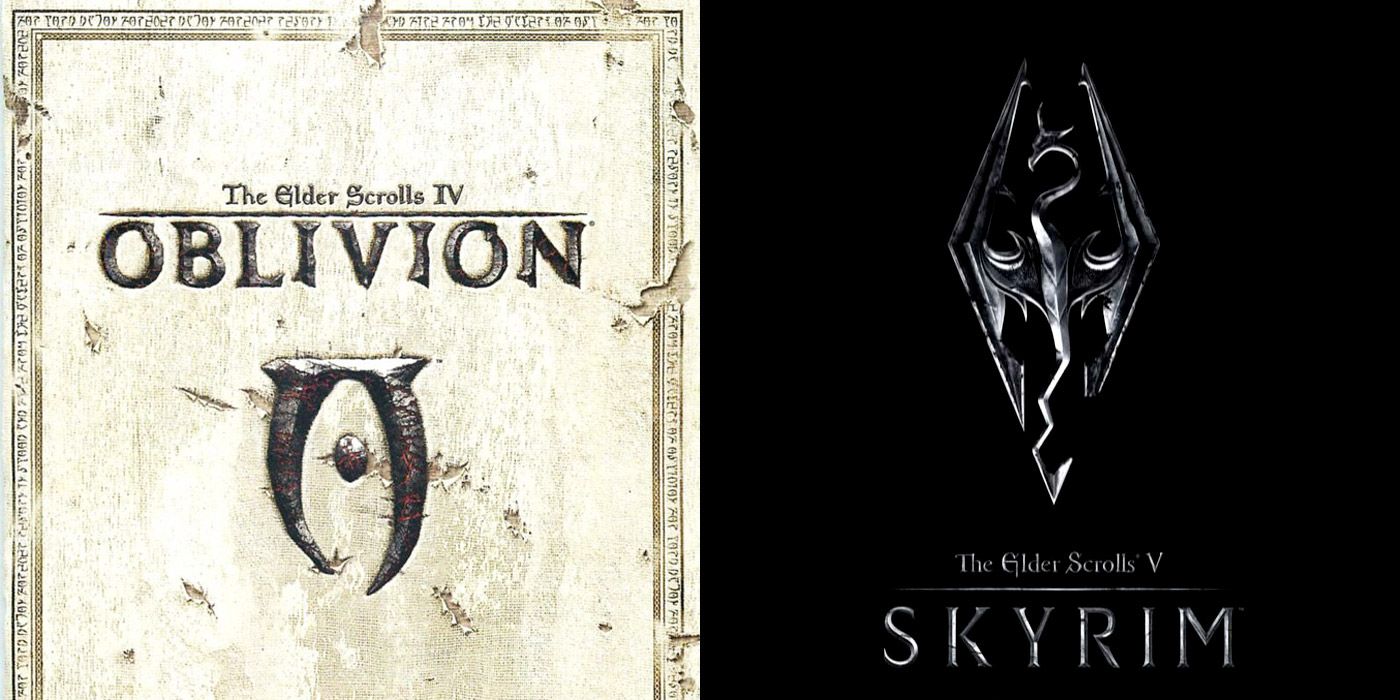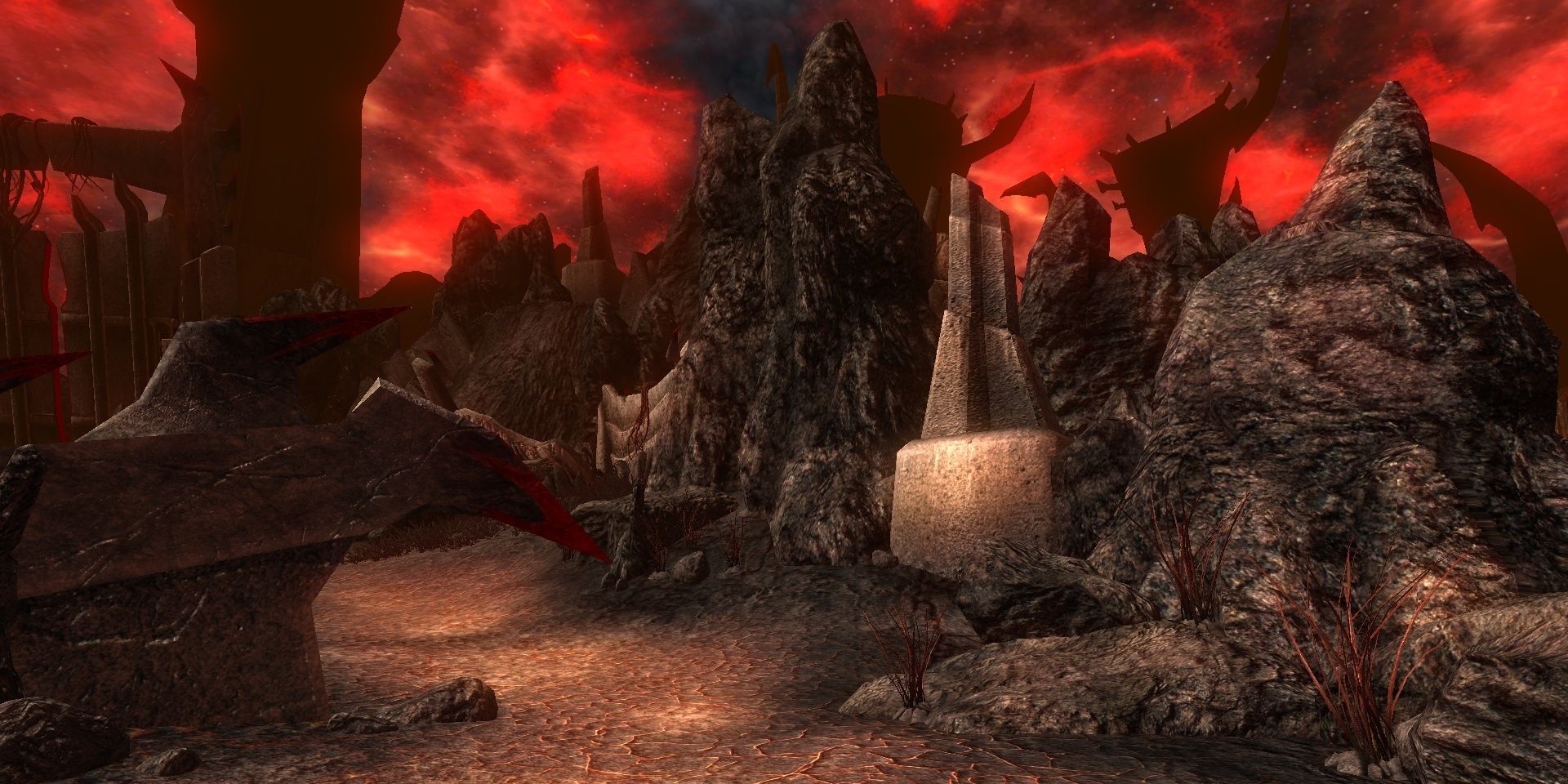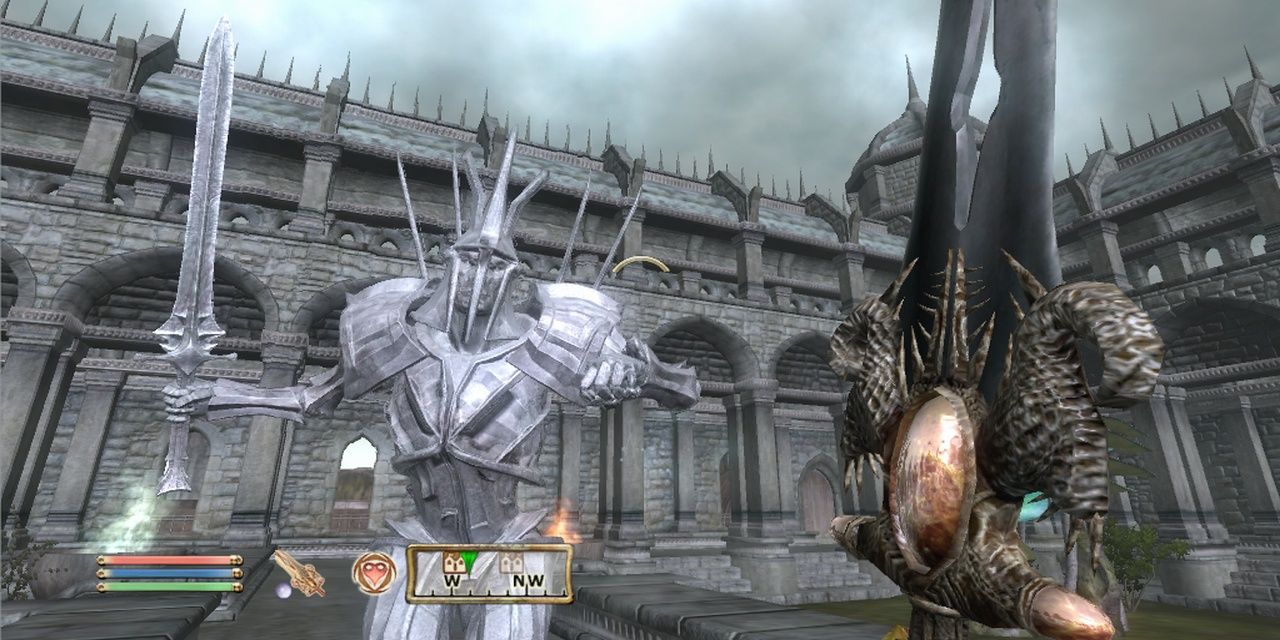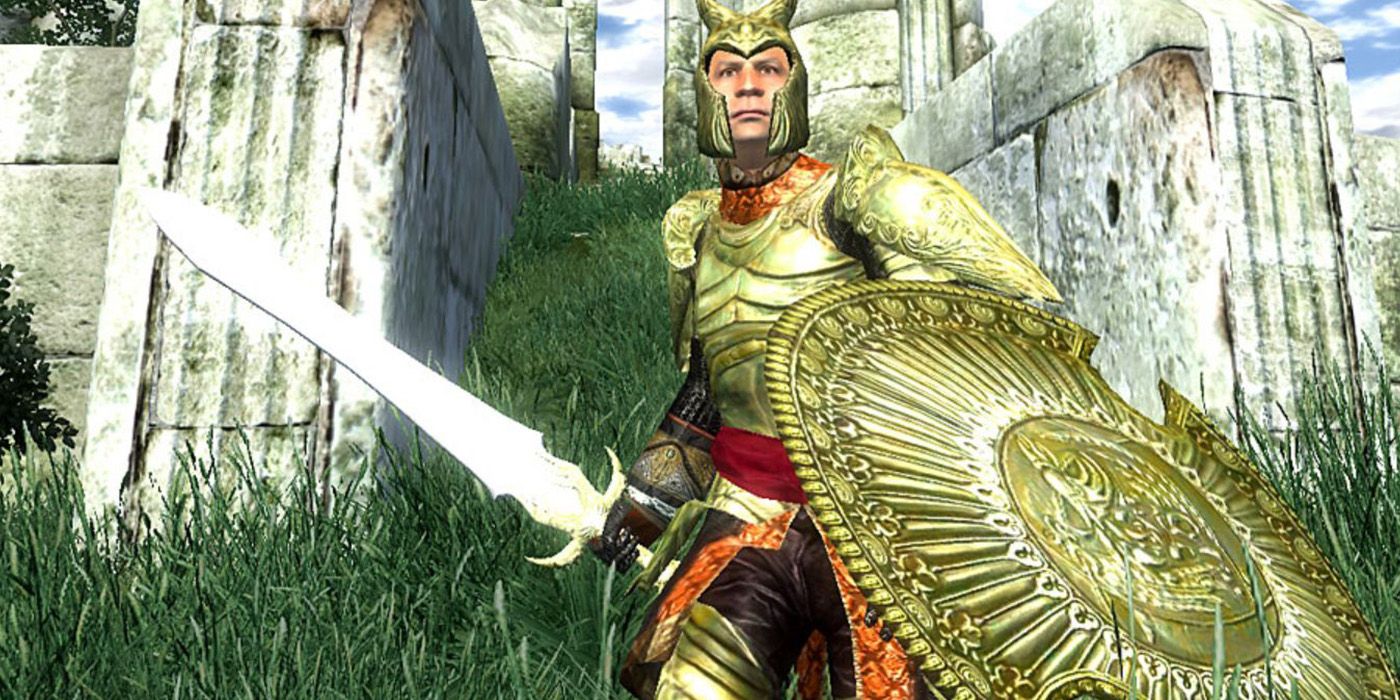
The Elder Scrolls is one of the biggest RPG franchises in the industry. Since the first game, Arena, released in 1994, Elder Scrolls games have consistently redefined the RPG genre with powerhouse titles. The most recent mainline entry in the series, Skyrim, was originally released in 2011 for the PC, PlayStation 3, and Xbox 360. The game was incredibly successful, and eventually received ports to the PlayStation 4, Xbox One, Nintendo Switch, and even the Amazon Alexa. The game was incredibly popular, so much so that Skyrim has become synonymous with western RPGs as an all-time classic.
Now, fans of the series are eagerly waiting for more news on The Elder Scrolls 6, although they likely have a couple more years to wait. With a new entry on the horizon, many fans have started wondering where the series will go next. Some have returned to Skyrim to re-experience its world and storylines. However, the entry that preceded it, Oblivion, deserves just as much attention from series fans and new players alike.
RELATED: Talented Elder Scrolls Fan Plays Oblivion Harvest Dawn Song on Harp

Oblivion gets its name from the demonic realm in Elder Scrolls' lore that houses a demonic race known as the Daedra, as well as the extremely powerful Daedric Princes. The realm of Oblivion and its Daedra have an impact on other Elder Scrolls games as well, but Oblivion allows the player to go into the realm through portals that appear across the game's map. Going into Oblivion not only offers an environment unlike anything in other Elder Scrolls titles, but it also gives players a more intimate look at the Daedra where players get a glimpse of how they actually live. New players may want to touch up Oblivion's graphics with mods if visiting for the first time, but the fiery realm is remarkable and immersive on its own.
Throughout Oblivion, the player is the main thing keeping the forces of Oblivion at bay. As players go into Oblivion gates and shut them down they also get sigil stones that can be used to enchant equipment with unique effects. The sigil stones allow players to feel like they are taking power from Oblivion itself, which makes the realm feel even more impactful on the game while showing players the Daedra. Players are able to complete quests for Daedric Princes in every Elder Scrolls title, but taking the sigil stones by force makes Oblivion's story feel as though it has more far-reaching consequences on the world while also being rewarding for players.

One of the biggest changes Skyrim made following Oblivion was that it simplified aspects of the game. Many of these changes were not negative, such as Skyrim's leaner leveling system. However, the simplification also had an impact on Skyrim's stories and quests, which are weaker than Oblivion's as a result. The quests that players engage with throughout Oblivion offer more choices than Skyrim does. Oblivion's quests are also more open than Skyrim's to allow them to be approached in a variety of ways due to Oblivion's more restrictive class system. The quests feature a lot more worldbuilding than Skyrim's does, which helps make Oblivion's striking world feel even more alive and fleshed out.
RELATED: Skyrim Player Creates Accurate Gandalf the Grey Character With Mods
Oblivion also challenges players more in its combat and exploration as well. Skyrim does feature a level-scaling system that buffs enemies as players level up, but it is much more modest than Oblivion's system. There are downsides to this, as fighting a group of bandits all equipped with expensive Daedric armor can feel a bit odd, but it does keep the game more challenging even after players have invested a lot of time and leveled up. The challenge also extends to how players find things in the world with factions like the Thieves Guild and Dark Brotherhood having to be discovered in Oblivion through unique means.

As players progress through the tutorial in Oblivion they are given the opportunity to try out all of the game's combat options. They try a one-handed weapon with a shield, a bow, a two-handed weapon, and cast a spell or two. At the end of the quest, players are given the choice of 21 pre-made classes, or they can create their own. Building a class determines what will be the character's primary skills, which will start at a higher level and likely be the focus for the player going forward. Of course, players can change their minds later on, but switching to level up a new skill can be difficult, especially with the game's more severe level-scaling. The class system was not featured in Skyrim as part of a series trend that has seen recent Elder Scrolls games becoming more simplified.
While many players ended up preferring the lack of a class system in Skyrim, it has the benefit of pushing Oblivion players to roleplay through the game. Pushing players to stick with their primary skills makes players engage with different parts of the game, which makes each playthrough feel different. Players having to focus on different options in Oblivion more completely also led to those parts having more depth, such as magic users being able to craft spells, a feature rumored to return in The Elder Scrolls 6.
Of course, each Elder Scrolls game has aspects that make it stand out from the rest of the series. There is a lot about Skyrim that makes it stand out from Oblivion and Morrowind, but there is just as much about Oblivion that makes the game more worth going back to now. It will be very interesting to see what influences The Elder Scrolls 6 takes from all of its predecessors, but hopefully, it will take some cues from what makes Oblivion special.
The Elder Scrolls 4: Oblivion is available now on PC, PS3, and Xbox 360.

